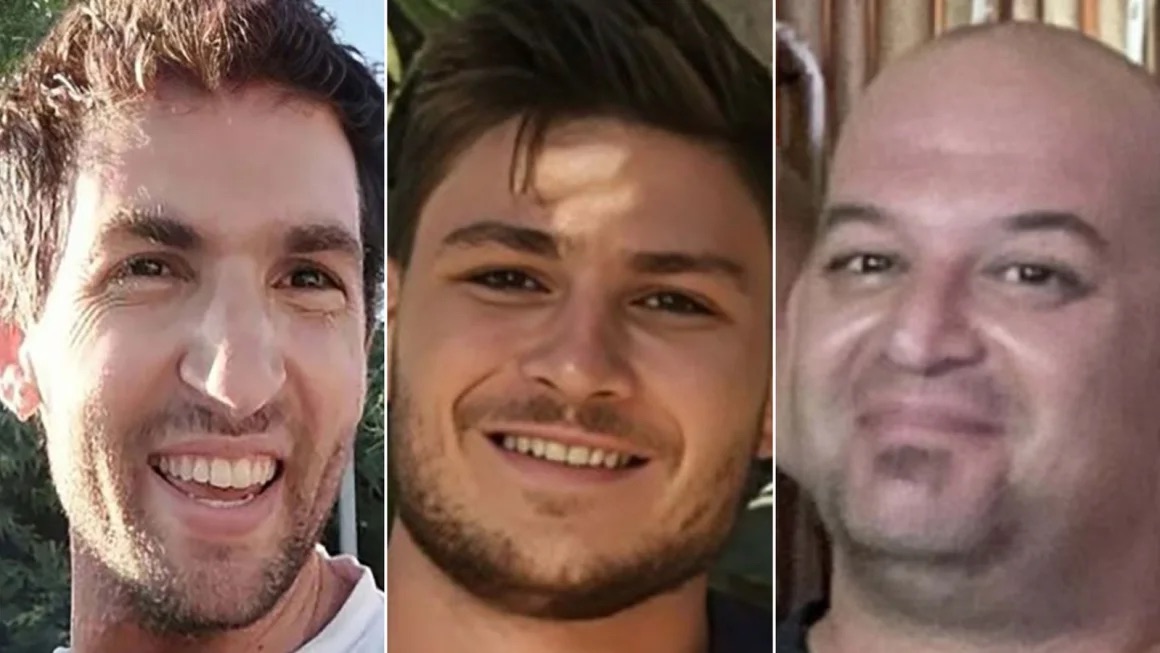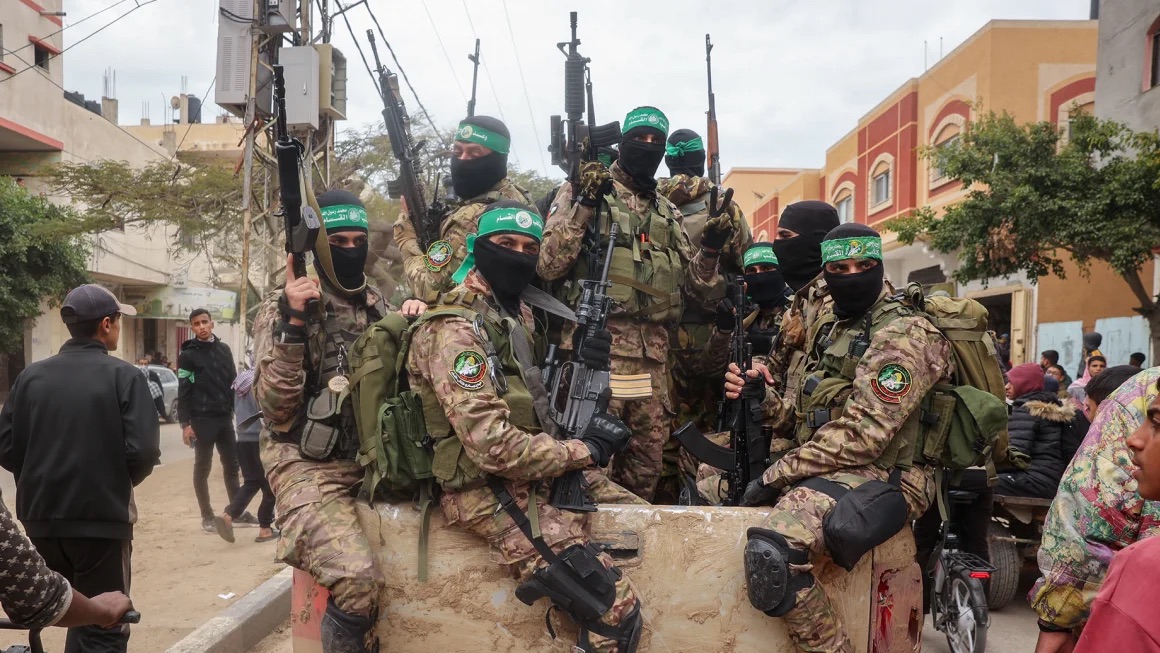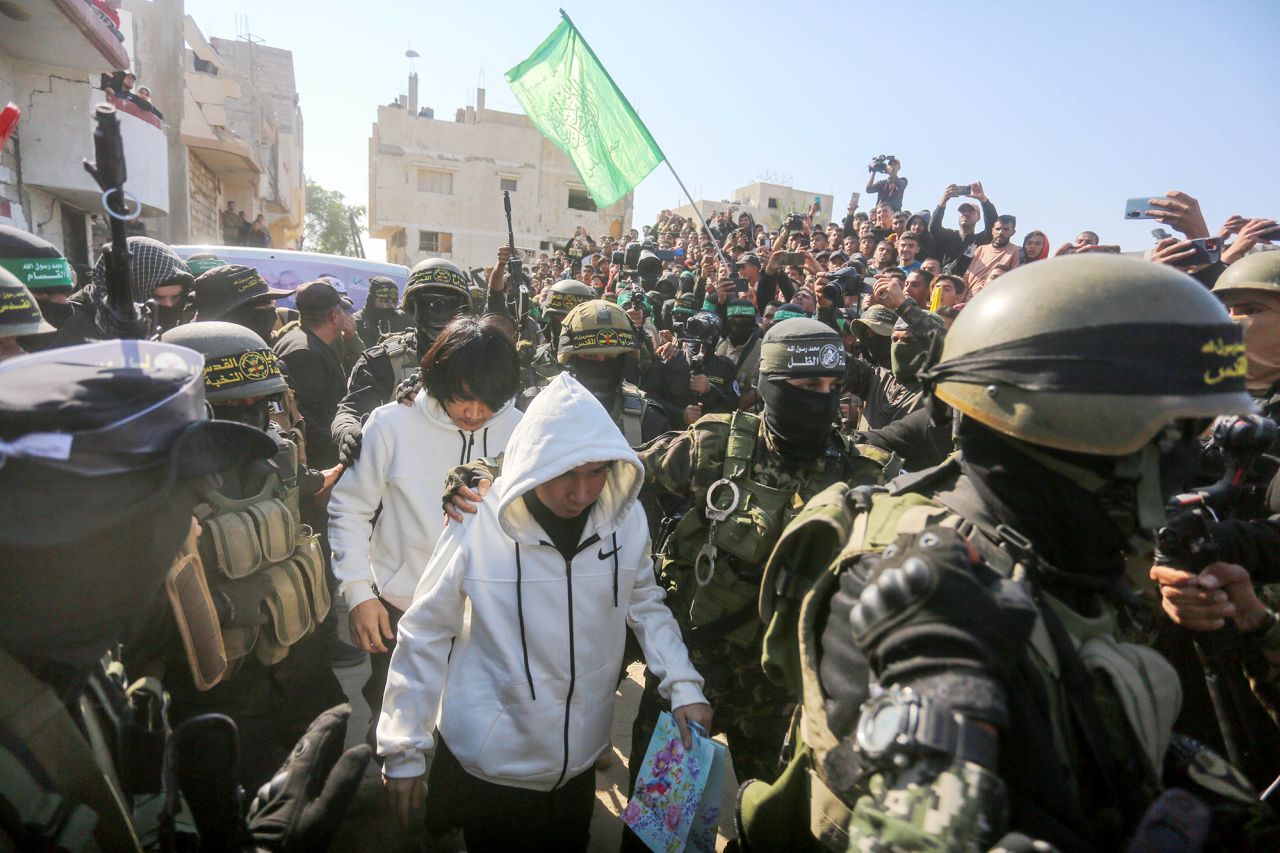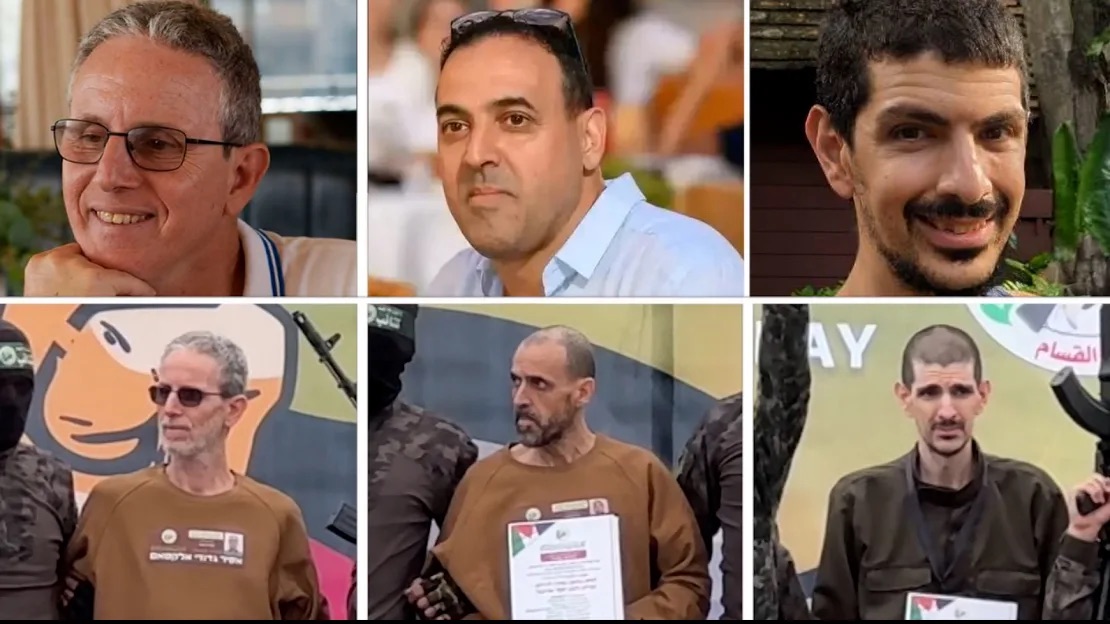JERUSALEM, Israel – Israel has announced the names of the three hostages set to be released on Saturday, February 15, 2025, marking the sixth exchange under the ceasefire deal that has been in place for over a month.
The hostages—American-Israeli Sagui Dekel-Chen, Russian-Israeli Alexandre Troufanov, and Argentinian-Israeli Iair Horn—are expected to be freed as part of the mediated agreement between Israel and Hamas.
Following their release, Israel is expected to free 369 Palestinian prisoners, according to Hamas’ Prisoner Media Office.
The announcement follows a week of uncertainty after Hamas temporarily suspended the planned hostage release, citing alleged Israeli violations of the truce.
However, the dispute appeared to be resolved on Thursday when Hamas confirmed the exchange would proceed as planned.

Hostage Profiles and Personal Tragedies
Troufanov, 27, was kidnapped from Kibbutz Nir Oz on 7 October 2023 along with his grandmother, Irena Tati, his mother, Lena Troufanov, and his girlfriend, Sapir Cohen, all of whom have since been released.
His father, Vitaly, was killed in the attack.
The Palestinian Islamic Jihad, which took him captive, has previously released several videos of him in captivity.
Dekel-Chen, 35, was taken while defending his community in Nir Oz during the Hamas-led assault.
At the time, his wife Avital was pregnant with their third child. Their daughter was born during his captivity and turned one in December.
Horn, now 46, was abducted alongside his brother Eitan, who remains in captivity.

Ceasefire Tested by Political and Diplomatic Pressures
The planned exchange comes amid renewed political tensions over the Gaza ceasefire.
US President Donald Trump has suggested scrapping the current phased approach and issuing an ultimatum for Hamas to release all hostages at once.
While Israeli Prime Minister Benjamin Netanyahu welcomed Trump’s stance, he stopped short of endorsing it outright, instead warning:
“Hamas must return our hostages by Saturday noon, or the military will return to intense fighting until Hamas is completely defeated.”
David Mencer, spokesperson for Netanyahu’s office, reinforced that the ceasefire hinges on the release of at least three live hostages by the deadline.
“There is a framework in place for the release of our hostages. That framework makes clear that three live hostages must be released by Hamas terrorists on Saturday,” Mencer said.
So far, 16 out of 33 Israeli hostages and five Thai nationals have been freed under the current phase of the deal. Israel has released 656 Palestinian prisoners from a list of nearly 2,000.

Former Hostages Speak Out
As negotiations continue, former hostages have begun sharing their experiences.
In a video message to President Trump, Keith Siegel, a former Israeli-American hostage who was released two weeks ago, urged the US leader to help secure the release of those still in captivity.
“I was held for 484 days in unimaginable conditions, and every single day felt like it could be my last,” Siegel said. “President Trump, you are the reason I am home alive. Please bring them home.”
Meanwhile, Or Levy, who was freed last Saturday, visited Tel Aviv’s Hostages Square, where he spoke about the urgency of securing the release of those still in Gaza.
“I still have many brothers and sisters in the hell of Gaza, and their time is running out,” he said.

Concerns Over Treatment of Hostages and Prisoners
The International Committee of the Red Cross (ICRC), which oversees hostage exchanges, reiterated its concerns over the conditions of those still held in captivity.
“The latest release operations reinforce the urgent need for ICRC access to those held hostage,” the organisation said on X.
“We have consistently reiterated that release and transfer operations should be carried out in a dignified and safe manner.”
Israel has criticised Hamas for staging hostage releases as public spectacles, where freed captives have been surrounded by armed militants in choreographed events.
The three male hostages released last week appeared gaunt and weak, prompting outrage in Israel.
Palestinian prisoners released by Israel have also reported mistreatment.
One former detainee, Rula Hassanein, told CNN that prisoners were forced to watch a 90-second Israeli propaganda video repeatedly before their release.
The Israel Prison Service denied knowledge of such practices.
With the latest exchange set to take place Saturday, mediators continue efforts to prevent further breakdowns in the ceasefire.
However, with both sides levelling accusations of violations, uncertainty remains over how long the truce will hold.







